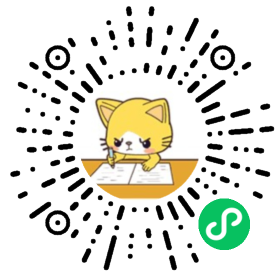【单选题】
银行采取什么样的业务发展战略、风险偏好,部门之间的业务关系是否顺畅,不同部门、不同层次的工作人员是否能够在重大的风险问题上达成基本的共识等,这些问题的解答在很大程度上取决于银行董事会和高级管理层的( )所设定的经营管理理念和基调。___
A. 风险管理理念
B. 风险价值观
C. 风险管理行为规范
D. 风险管理人员能力
查看试卷,进入试卷练习

微信扫一扫,开始刷题

答案
B
解析
暂无解析
相关试题
【单选题】
农商行(农信社)通过风险管理文化建设,在机构内部的各项业务或活动中确定理念中不包括( )。___
A. 利润为根理念
B. 风险为本理念
C. 资本约束理念
D. 风险价值观理念
【单选题】
风险管理制度文化是围绕企业的( ),要求全体员工共同遵守的、对员工的行为产生约束性与规范性影响的风险管理流程、组织结构与制度的总和。___
A. 风险理念文化
B. 风险价值观
C. 风险控制技术
D. 风险制度
【单选题】
通过( )完善售后服务和金融产品缺陷弥补机制,达到或超过客户预期,从而创造更多的利润。___
A. 明确相关业务创新部门职责
B. 再造业务流程
C. 宣传工作
D. 建立统一的客户服务中心
【单选题】
目前,大多数农商行(农信社)与其他银行业务和产品同质化现象严重,追求规模扩张和高速增长的惯性思维还普遍存在,对业绩考核还主要以( )指标为主。___
A. 利润、存贷款
B. 利润、发展潜力
C. 利润、社会价值
D. 存贷款、社会价值
【单选题】
农商行(农信社)高级管理层要指定首席风险官或风险管理职能部门根据董事会确定的风险管理机制建设3—5年规划,以( )为依托。___
A. 机构总体企业文化建设
B. 组织结构
C. 发展目标
D. 风险状况
【单选题】
省级联社的统一策划下,从整个系统利益出发,对包括风险管理文化在内的企业文化建设进行统一规划,统一推进,不包括( )。___
A. 统一的品牌
B. 统一风险管理理念
C. 统一制度规范
D. 统一的人员结构
【单选题】
农商行(农信社)早日实现由传统的外延粗放式增长方式向( )增长方式的转变,既是农商行(农信社)战略发展的需要,也是建设现代风险管理文化的必然要求。___
A. 内涵集约型
B. 利益导向型
C. 市场导向型
D. 问题导向型
【单选题】
中国银监会在《关于做好当前农商行(农信社)监管工作的通知》等指导性文件中,多次强调“拨备和资本必须充足”,要求农商行(农信社)降低风险资产的比例,确保( )扩张速度的匹配。___
A. 资本规模与信贷资产规模
B. 利润规模与信贷资产规模
C. 资本规模与利润资产规模
D. 人员规模与利润资产规模
【单选题】
通过推进代理业务、理财业务、银行卡业务等,大力开拓对私业务和代理类等中间业务,调整( ),努力提高非利息收入占比,实现均衡协调发展。___
A. 人员结构、业务结构和收入结构
B. 客户结构、人员结构和收入结构
C. 客户结构、业务结构和人员结构
D. 客户结构、业务结构和收入结构
【单选题】
进一步完善公司治理机制,农商行(农信社)发展转型的最终目的是要建立健全( )。___
A. 可持续发展的机制
B. 低风险的运营的机制
C. 合规运营程序的机制
D. 扩大市场的机制
【单选题】
( )是指故意骗取、盗用财产或违反监管规章、法律或公司政策导致的损失,此类事件至少涉及内部一方,但不包括歧视及差别待遇事件。___
A. 内部欺诈
B. 失职违规
C. 督导落实
D. 检查整改
【单选题】
( )是指银行内部员工因过失没有按照雇佣合同、内部员工守则、相关业务及管理规定操作或者办理业务造成的风险。___
A. 内部欺诈
B. 知识/技能匮乏
C. 违反用工法
D. 失职违规
【单选题】
( )是指各类文件档案的制定、管理不善,包括不合适的或不健全的文档结构、协议中出现错误或缺乏协议等,历来是各银行加强关键流程控制的重点。___
A. 财务/会计错误
B. 产品设计缺陷
C. 错误监控/报告
D. 文件/合同缺陷
【单选题】
( )是指银行为公司、个人、金融机构等客户提供的产品在业务管理框架、权利义务结构、风险管理要求等方面存在不完善、不健全等问题。___
A. 产品设计缺陷
B. 财务/会计错误
C. 错误监控/报告
D. 文件/合同缺陷
【单选题】
本国政府或银行海外机构所在地政府诞生新的立法、公共利益集团的持续压力/运动、极端组织的行动/蓄意破坏、政变/政府更替等事件给银行造成经济损失属于的风险种类是( )。___
A. 政治风险
B. 国别风险
C. 流动性风险
D. 重新定价风险
【单选题】
( )是指银行未遵守金融监管当局的规定而可能造成的损失,在出台新的金融监管规定、金融监管加强、金融监管者发生改变、金融监管重点发生变化时,较易出现此方面的风险。___
A. 监管规定
B. 外部欺诈
C. 洗钱
D. 政治风险
【单选题】
( )是指由于外部供应商的过错而导致服务或供应中断或撤销而造成的损失,例如供电局拉闸限电、系统服务外包机构破产等。___
A. 业务外包
B. 监管规定
C. 外部欺诈
D. 洗钱
【单选题】
( )是在银行内部控制体系的基础上,通过开展全员风险识别,识别出全行经营管理中存在的风险点,并从影响程度和发生概率两个角度来评估操作风险的重要程度。___
A. 历史模拟情景法
B. 自我评估法
C. 极值理论法
D. 假定特殊事件法
【单选题】
下列可以体现操作风险差异性的是( )。___
A. 操作风险管理实际上覆盖了银行经营管理中几乎所有方面的不同风险
B. 业务规模小、交易量小、结构变化不太迅速的业务领域
C. 引起操作风险的因素较复杂
D. 操作风险会转化为其他风险
推荐试题
【单选题】
中国特色社会主义是由道路、理论体系、制度三位一体构成的,其中___是根本保障。
A. 中国特色社会主义道路
B. 中国特色社会主义理论体系
C. 中国特色社会主义制度
D. 中国特色社会主义实践
【单选题】
经济体制改革是全面深化改革的重点,核心问题是___
A. 处理好政府和市场的关系,使政府在资源配置中起决定性作用和更好发挥市场作用
B. 处理好政府和市场的关系,使市场在资源配置中起决定性作用和更好发挥政府作用
C. 处理好政府和市场的关系,使政府在资源配置中起基础性作用和更好发挥市场作用
D. 处理好政府和市场的关系,使市场在资源配置中起基础性作用和更好发挥政府作用
【单选题】
要深入开展法制宣传教育,在全社会弘扬社会主义法治精神,传播法律知识,培养法律意识,在全社会形成___守法光荣的良好氛围。
A. 宪法至上
B. 法律至上
C. 全民守法
D. 违法可耻
【单选题】
中共十八届三中全会提出,到___年在重要领域和关键环节改革上取得决定性成果,形成系统完备、科学规范、运行有效的制度体系,使各方面的制度更加成熟更加定型。
A. 2015
B. 2020
C. 2025
D. 2030
【单选题】
改革越深入,越要注意协同,既抓改革___,也抓改革___,更抓改革___,促进各项改革举措在政策取向上相互配合、在实施过程中相互促进、在改革成效上相得益彰,朝着全面深化改革总目标聚焦发力。___
A. 方案协同落实协同效果协同
B. 督察协同落实协同效果协同
C. 方案协同督查协同效果协同
D. 方案协同落实协同督查协同
【单选题】
___是党在新的时代条件下带领全国各族人民进行的新的伟大革命,是当代中国最鲜明的特色,是决定当代中国命运的关键抉择,是党和人民事业大踏步赶上时代的重要法宝。
A. 改革开放
B. 三个代表
C. 科学发展观
D. 执政为民
【单选题】
改革开放在认识和实践上的每一次突破和发展,无不来自___的实践和智慧。要鼓励地方、基层、群众解放思想、积极探索,鼓励不同区域进行差别化试点,善于从群众关注的焦点、百姓生活的难点中寻找改革切入点,推动顶层设计和基层探索良性互动、有机结合。
A. 各地区各部门
B. 基层干部
C. 人民群众
D. 改革
【单选题】
党的___通过的《中共中央关于制定国民经济和社会发展第十三个五年规划的建议》,是指导我国改革发展的纲领性文件。
A. 十八届三中全会
B. 十八届四中全会
C. 十八届五中全会
D. 十八届六中全会
【单选题】
要准确把握改革试点方向,把___作为核心任务,发挥试点对全局改革的示范、突破、带动作用。要加强试点工作统筹,科学组织实施,及时总结推广。要对试点项目进行清理规范,摸清情况,分类处理。
A. 规划布局
B. 督查落实
C. 重大改革推进
D. 制度创新
【单选题】
供给侧结构性改革与全面深化改革、落实新发展理念是相通的,核心是体制机制创新,最终目标是形成___。
A. 去产能、去库存、去杠杆
B. 结构转型升级
C. 经济快速增长
D. 经济增长新机制
【单选题】
全面推进依法治国,必须坚持___有机统一,这是我国社会主义法治建设的一条基本经验。
A. 党的领导、人民当家作主、依法治国
B. 党委领导、政府主导、全民参与
C. 依法治党、依法治国、依法治军
D. 依法治国、以德治国
【单选题】
党的十八届四中全会《决定》将“建设中国特色社会主义法治体系,建设社会主义法治国家”确立为全面推进依法治国的总目标,并提出了___法治体系建设目标。
A. 两大
B. 三大
C. 四大
D. 五大
【单选题】
“坚持依法治国和以德治国相结合”。以下相关表述不正确的是___。
A. 国家和社会治理需要法律和道德共同发挥作用
B. 法律主要发挥教化作用,道德主要发挥规范作用
C. 强化法律对道德建设的促进作用,强化道德对法治文化的支撑作用
D. 法律和道德都具有规范社会行为、维护社会秩序的作用
【单选题】
全面推进政务公开,坚持___原则,推进决策公开、执行公开、管理公开、服务公开、结果公开。
A. 公开没有例外
B. 以公开为常态、不公开为例外
C. 一律网上公开
D. 各项工作及进程全部公开
【单选题】
作为法治理念的公平正义是指___
A. 社会成员之间的社会地位、经济收入、消费水平接近
B. 每个人拥有平等的生存、发展的权利和机会
C. 社会成员能够依法公平地实现权力和义务,并受法律保护
D. 人们享有的权利与所承担的责任相一致
【单选题】
深入推进依法行政,建设法治政府,必须___,做到有法必依、执法必严、违法必究
A. 依法全面履行政府职能
B. 提高行政立法的质量
C. 健全依法决策机制
D. 坚持严格执法
【单选题】
党的执政主张凡是要上升为国家意志的,必须由国家权力机关经过___,使之成为法律法规或国家机关的决议、决定,再由各级各类国家机关依法实行。
A. 党内程序
B. 法定程序
C. 意志程序
D. 多数投票
【单选题】
___是执法为民的根本出发点,___是执法为民的基本要求,___是执法为民的客观需要。___
A. 以人为本、保障人权、文明执法
B. 有法可依、有法必依、执法必严
C. 保障人权、文明执法、以人为本
D. 有法可依、执法必严、违法必究

